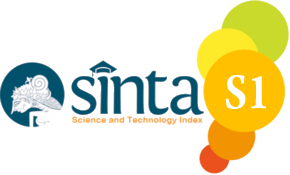WAKAF TUNAI MENURUT PANDANGAN FIQH SYĀFI‘IYAH DAN FATWA MAJELIS ULAMA INDONESIA NO.2 TAHUN 2002 TENTANG WAKAF UANG
Abstract
This study discusses the cash waqf according to Syāfi‘iyah school and the Fatwa
according to the Indonesian Ulema Council (MUI). The problem questions that want
to be answered through this research are related to the notion of waqf in the view
Syāfi‘iyah and MUI, cash waqf law in perspective and rationale Syāfi‘iyah against
fatwa MUI and the cash endowments, as well as the understandingof cash waqf
arguments. From this study, it is found that the MUI fatwa stipulates that charitable
money is permissible or legal, while Syāfi‘iyah assumed that it is illegitimate. MUI
underlying consideration in the opinion of Ḥanafī schools that allow endowments
dirhams and dinars on the basis of istiḥsān bi al-'urf. Furthermore, according to the
principle syafi'iyah waqf object is to be the principal eternal object or substance
(baqā' 'aynih), which is not destroyed after use. Whereas money can be destroyed
like food.
Keywords
Full Text:
PDFReferences
Al-Damanhury, Ahmad. Idah al-Mubham min Ma‘ani al-Sulam, Jeddah: al- Haramain: t.th.
Al-Asqalani, Ibn Hajar. Fath al-Bari . Jakarta: Pustaka Azzam, 2006.
Anwar, Desi. Kamus Bahasa Indonesia Modern, cet. 1. Surabaya: Amelia, 2002.
Basri, Cik Hasan, Kompilasi Hukum Islam Dalam Sistem Hukum Nasianal, cet. I. Jakarta: PT. Logos Wacana Ilmu, 1999.
Departemen Agama RI, Himpunan Fatwa Majlis Ulama Indonesia, cet. I. Jakarta: Departemen Agama, 2003.
--------------------, Strategi Pengembangan Wakaf Tunai di Indonesia, edisi revisi ke- 4. Jakarta: Direktorat Pemberdayaan Wakaf, 2007.
--------------------, Fikih Wakaf, Jakarta: Direktorat Pemberdayaan Wakaf, 2007.
--------------------, Panduan Pemberdayaan Tanah Wakaf Produktif Strategis di Indonesia. Jakarta: Direktorat Pemberdayaan Wakaf, 2007.
--------------------, Paradigma Baru Wakaf di Indonesia, Jakarta: Direktorat Pemberdayaan Wakaf, 2007.
--------------------, Pedoman Pengelolaan Wakaf Tunai, cet. IV. Jakarta: Direktorat Pemberdayaan Wakaf, 2007.
Djazuli, A. Fiqh Siasah (Implementasi kemeslahatan Umat), cet. I. Bogor: Kencana, 2003.
Djazuli, Achmad & Thobieb Al-Asyhar, Menuju Era Wakaf Produktif, cet. IV. Jakarta: Mumtaz Publishing, 2007.
Firdaus, Ushul Fiqh Metode Mengkaji Dan Memahami Hukum Islam Secara Konferehensif, cet. I, Jakarta: Zikra Hakim, 2004.
Halim, Abdul. Hukum Perwaqafan di Indonesia, cet. I. Jakarta: Ciputat Pres, 2005.
Al-Haytami, Ibn Hajar. Tuhfah al-Muhtaj, Juz. VI. Libanon: Darul Fukad, 1997.
Ibn Hanbal, Ahmad, Musnad Imam Ahmad Ibn Hanbal, juz I. T.tp: Dār Shādir, 1998.
Ibn Katsir, Al-Hafiz, Tafsir al-Qur’an al-‘Azim, juz I. Beirut: t.p, 1997.
Ibrahim Al-Bajuri. Hasyiyah Al-Bajuri, jilid II. Semarang: Maktabah wa Mathba’ah Putera, t.th. Karim, Helmi. Fiqh Mu'amalah, cet. I. Jakarta: Raja Grafindo Persada, 2002.
Al-Kasani, Abu Bakr Ibn Mas’ud. Badai’ al-Sana’i Fi Tartib al-Syar’i, jilid VI. Beirut: Maktabah al-‘Ilmiyyah, 1971.
Koto, H. Alaidin, Ilmu Fiqh dan Ilmu Fiqh, Jakarta: PT. Raja Grafindo, 2004.
Al-Mawardi, Abu Husayn Ibn Muhammad. Al-Hawi al-Kabir, jilid VII. Beirut: Dar al-Fikr, 1994.
Mujib, Ahmad & Ahmad Rodli Hasbullah. Hadis -Hadis Muttafaq’alaih, cet. I. Jakarta: Kencana, 2004.
Mujib, Ahmad, H. Ahmad Rodli Hasbullah. Hadis -Hadis Muttafaq’alaih, Jakarta: Kencana, 2004.
Nazari, H.Rafi’i. “Illah dan Dinamika Hukum Islam”, tesis. Jakarta: IAIN Syarif Hidayatullah, 1990.
Rafiq, Ahmad. Hukum Islam di Indonesia. Jakarta: Raja Grafindo Persada, 1996.
Al-Rāfi‘iy, ‘Abd al-Karim bin Muhammad bin ‘Abd al-Karim. Al-‘Aziz, Tahqiq Ali Muhammad Ma‘awwaz, juz VI. Beirut libanon: Dar al-Kutub al-‘Alamiyah, 1997.
Al-Syarakhsi, Al-Mabsut, jilid 11-12. Beirut: Dar al-Kutub al-‘ilmiyah, 1993.
Suhendi, Hendi. Fiqh Mu'amalah, cet. II. Jakarta: P.T, Raja Grafindo Persada, 2002.
Wadjdy, Farid. Wakaf dan Kesejahteraan Umat, cet. I. Yogyakarta: Pustaka Pelajar, 2007.
DOI: http://dx.doi.org/10.22373/jiif.v15i1.560
Refbacks
- There are currently no refbacks.
Welcome to Jurnal Ilmiah Islam Futura (JIIF) open journal system. Thank you very much for visiting. We are looking forward to getting your research articles
Jurnal Ilmiah Islam Futura
All works are licensed under CC-BY
©Published by Center for Research and Community Service (LP2M) in cooperation with the Postgraduate Program of UIN Ar-Raniry Banda Aceh, Aceh, Indonesia.





